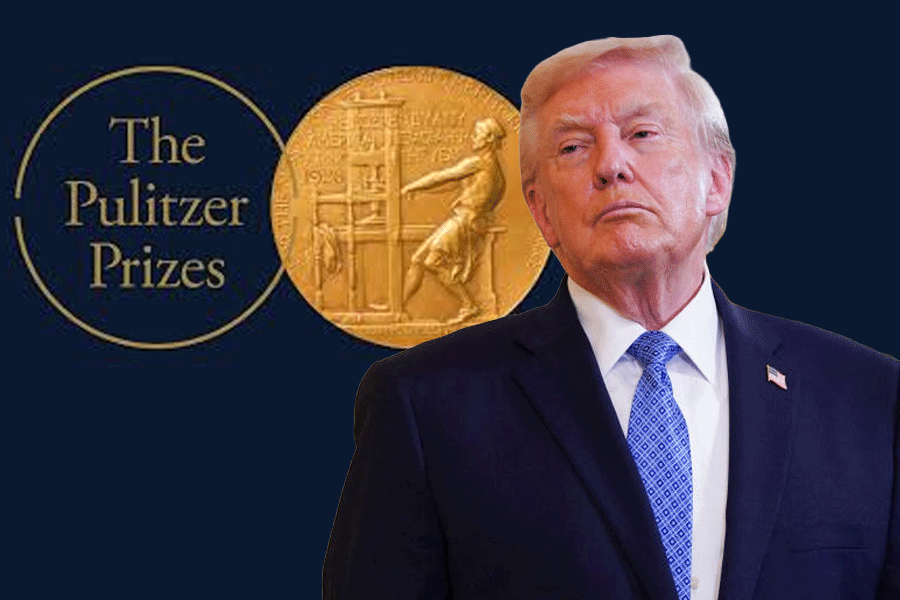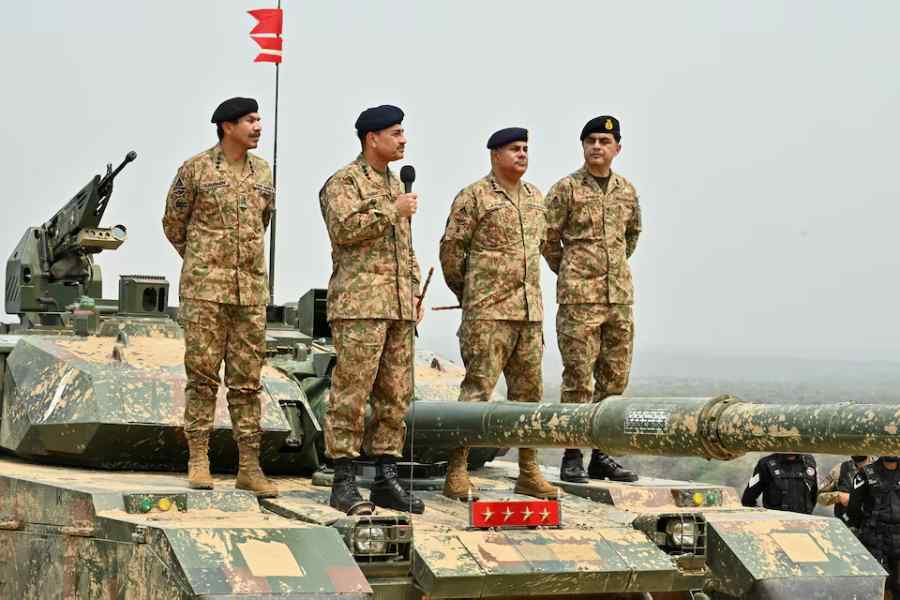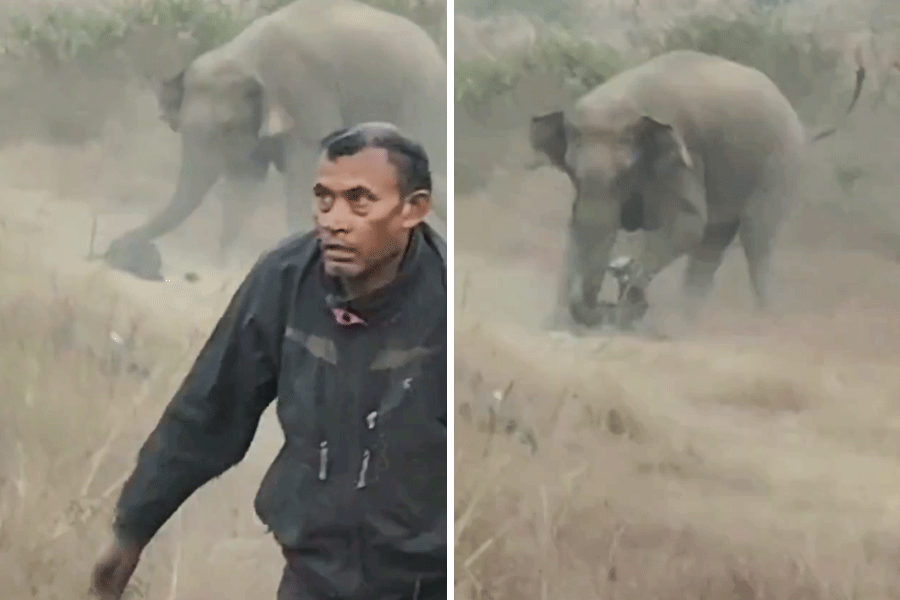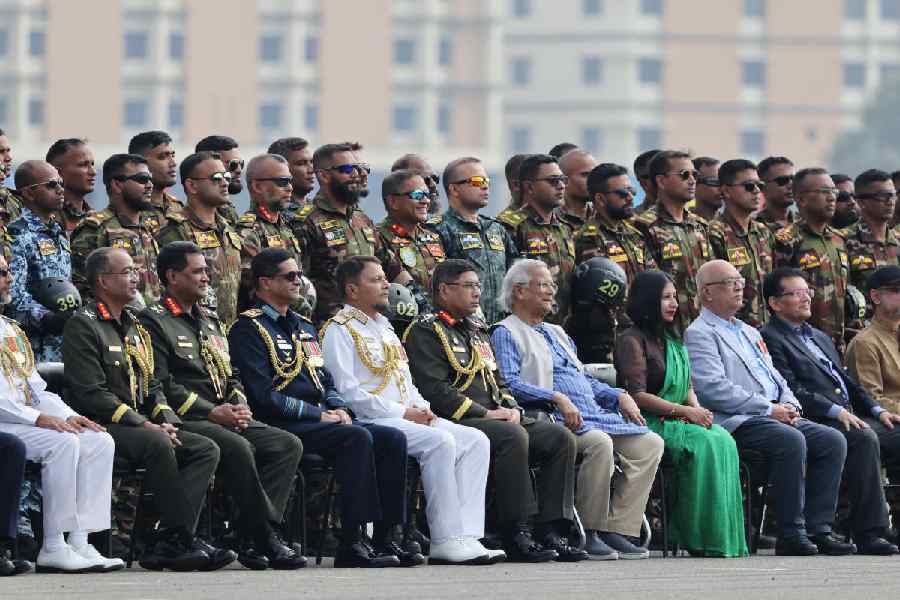 |
The men look bored. Dressed in camouflage and armed with sophisticated guns, the militants of the Kuki National Army (KNA) roam aimlessly in a camp set against the Houpi hills at one end of Manipur, barely 60 kilometres from the Chin state of western Myanmar. They are waiting for their chief to lead them to action.
The chief, Paulun Soyang Haokip, is in a quandary. He is sitting in a friend’s house in Manipur’s Churachandpur town, waiting for a signal from New Delhi. “The government is not clear on its intentions on peace talks and our cadre doesn’t want to sit idle any longer,” says Haokip, president of the Kuki National Organisation (KNO) and supreme commander of the 17 major Kuki militant groups, including the KNA which come under the KNO.
Haokip’s men have been waiting for action for the past eight years — ever since the KNO signed the suspension of operation (SOO) pact, first with the Army in 2005 and then with the Centre in 2008. In November last year, the KNO refused to extend the SOO any further and insisted on holding urgent talks with the Centre for a separate Kuki state carved out of the Churachandpur and Chandel districts of Manipur with other Kuki-inhabited parts of the state in Senapati, Ukhrul and Tamenglong districts. The Kukis are one of 40 ethnic communities of Manipur.
But nothing, rues Haokip, has moved since then. The chief has given an ultimatum to the Centre — start talks by February, or face the consequences. If the government doesn’t respond in the next few days, he says a “Quit Kuki Land” movement will begin in right earnest.
“We will target Indian Army personnel first before we target civilians. I believe the sound of gunshots will definitely reach the ears of the Indian government. Only then will they pay heed to our demand,” stresses Haokip, who adds that his men killed 300 civilians and security men in a span of 10 years till 2010.
The 60-year-old leader says he feels “betrayed” by the Indian Army which he’d thought would help them negotiate with the Centre. “We have not attacked the Indian Army after 2005. We even protected the force from attacks by other ethnic groups but they never helped us with our goal,” he says.
He has resumed talks with old friends in the Myanmar-based militant group, the Kachin Independent Army (KIA). Haokip says the KIA will give fresh military training to his 1,200-member group. A core group of 25 militants of the KNA had been trained in guerrilla warfare by the KIA in 1988, the year the Kuki outfit had been set up to press for Zale’-gam — or the Land of Freedom.
Haokip had also pinned his hopes on Myanmar’s celebrated democratic leader Aung San Suu Kyi, convinced that she would support the Kuki cause. The Nobel laureate, however, hasn’t responded to the Kuki overtures. “I don’t think she can do anything for us,” he says.
Haokip, dressed in a formal grey suit and red tie, doesn’t match the general image of a fierce militant. Five-feet-and-four-inches tall, he looks like a government servant instead. Indeed, he once worked as a clerk at a nationalised bank. A teetotaller, he is known in his group as an introvert. Fluent in his local dialect Khochungte, he speaks haltingly in English — but doesn’t dodge a single question in the course of a three-hour long interview.
He was born into a middle-class family in Seimei in the Sadar Hills of Manipur. His father, Paulun, was a village chief, and his mother, Nemboi, a homemaker. When his family moved to neighbouring Nagaland, he studied at the Baptist English School in Kohima and later joined the Kohima College for a Bachelor of Arts degree.
Haokip says that though he belongs to a community whose men “love their guns more than their wives”, he has not been trained for armed battle. His knowledge of weapons is limited to the operation of a Ruger gun that he keeps for his own safety. “As a young boy, I had used a gun to hunt wild boars,” he laughs. The militant leader claims that he has killed only one person in his life — a militant who raped a woman.
Inspired by religious teachings, Haokip, a Christian, came close to the KNA because of his interest in religion. In 1994, when then KNA chief Thangkhulung was killed by KNO president Sokholung, Haokip’s cousin Vipin, a KNA militant, approached him. He was urged to help bring peace to the KNA through his teachings. Haokip succeeded in the mission and was appointed the head of both the KNA and the KNO.
“Since I am from the Kuki community, I realised that this could be an opportunity to serve my own people,” he says.
KNA started its operations in 1988 to fight the Naga militant group, the National Socialist Council of Nagaland (Issac-Muivah), which has been demanding Nagalim — a state comprising Naga-inhabited areas of Assam, Arunachal Pradesh and parts of the Tamenglong, Senapati, Ukhrul and Chandel districts of Manipur.
“They are laying their hands on our areas. We will not let that happen at any cost,” he says.
Kukis allege that the Centre has always pampered their rivals. Haokip points out that Prime Minister Manmohan Singh and his predecessor Atal Behari Vajpayee met top NSCN (IM) leaders and heard them out. In 2010, the government appointed an interlocutor to facilitate the Naga peace talks. But the Kukis are still waiting to hear from the government.
“We have always been treated like a stepchild,” Haokip complains. “The government’s peace process in Manipur will be flawed if it doesn’t talk to us.”
Haokip also alleges that the NSCN (IM) gets regular funds from the government. All that the Kukis have received, he says, is a sum of Rs 10 lakh that was given to them in 2005.
Now they survive mostly on the money that they extort from contractors and traders, Haokip admits. “The money that we get from the government is not enough. So extortion is the only option left for my cadres to survive,” says Haokip, pointing out that the vocational training the government had promised his men never materialised.
Haokip, who is underground, flits from one country to the other in southeast Asia, using pseudonyms. He lived in Delhi for seven years in the late 1990s, when he wrote his book, The Kuki Nation.
These days, he has been frequently visiting Delhi and spending time with his cadre in Manipur. The men in the camp complain that they have hardly ever seen Haokip. One militant, who joined the organisation as a minor, says he met him only once in 19 years. He wanted to leave the organisation and sought permission from Haokip to do so. His request was turned down.
“We have to continue the fight till we get our Kuki state,” Haokip had told the young man.
Like this young man, many minors joined the Kuki movement during its heyday. “Children who have seen their family members being killed joined us and we never stopped them,” Haokip says.
Has he ever encouraged any of his children — two surviving sons and two daughters — to join the movement? “Once my son Mangtinthang wanted to spend some time in the camp. But I did not entertain his demand as the organisational rules wouldn’t have allowed him to leave,” he replies.
His younger son, Tongkhohao, is studying in Delhi University and his daughters — Lhaineithem and Neilhing — are married and live in Nagaland. His wife, whose name he doesn’t want to disclose, is an All India Radio employee in Imphal. “I meet my family only twice a year. I miss them a lot,” he says.
The one he misses the most is his eldest son, Lunminlen, who died in 2007 at the age of 25. Haokip blames himself for his son’s death. “My son was gay and I couldn’t accept him the way he was. He was depressed, took drugs and committed suicide,” says the grieving father, who admits that he is a bit “orthodox” in his thinking.
His traditional mindset is also reflected in his opinion on women cadre members who he believes “distract” their male counterparts. “I fear our male soldiers would end up fighting over women,” he says, adding that there are only 150 women in the cadre.
Haokip, clearly, is proud of the history of the Kukis, who declared war against the British in 1917 for the independence of Manipur. “During World War II, we also fought along with the Imperial Japanese Army and the Indian National Army against the British.”
But the militant leader does not support Maoist insurgents in the country. “I condemn their attacks,” he says. Stressing that his organisation, unlike some other Northeastern militant groups, has no links with the Maoists, he says: “The Maoists are like the al Qaida. They should not use guns for social reformation.”
But guns for a new state? That, clearly, is whole new ballgame.











